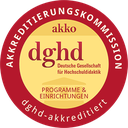Enhancing complex learning – the importance of learning tasks for competence-based learning
This one-day workshop will introduce the four-component instructional design model (4C/ID; van Merrienboer & Kirschner, 2013), a model for the systematic development of competence-based education. It is meant for program directors and teachers in higher education.
A basic assumption of the model is that competence-based curricula are built from four components: (1) learning tasks, (2) supportive information, (3) procedural information, and (4) part-task practice.
The workshop will familiarize the participants with the 4C/ID model and provide some basic practice in its use. Both the morning and the afternoon session consist of two blocks, thus four blocks in total. The first block will provide a general introduction to the model and describe each of its four components in detail. In the other three blocks, the participants will work on practical assignments focusing on (1) the design and sequencing of learning tasks, (2) the development of a complete educational blueprint connecting the learning tasks to supportive information, procedural information, and part-task practice, and (3) the development of assessment instruments, in particular, development portfolios. Participants are requested to come to the workshop with a concrete course or part of a curriculum that needs to be designed or redesigned in their mind.
Lesetipp
Van Merrienboer, J. J. G., & Kirschner, P. A. (2013). Ten steps to complex learning (2nd rev. ed.). New York: Routledge.
Referent: Prof. Dr. Jeroen J. G. van Merrienboer
Termin: Di, 15.03.2016
Umfang: 1 Tag
Anmeldung: Hier geht es zur Anmeldung unter Auswahl der Veranstaltung und Angabe Ihrer Kontaktdaten.


